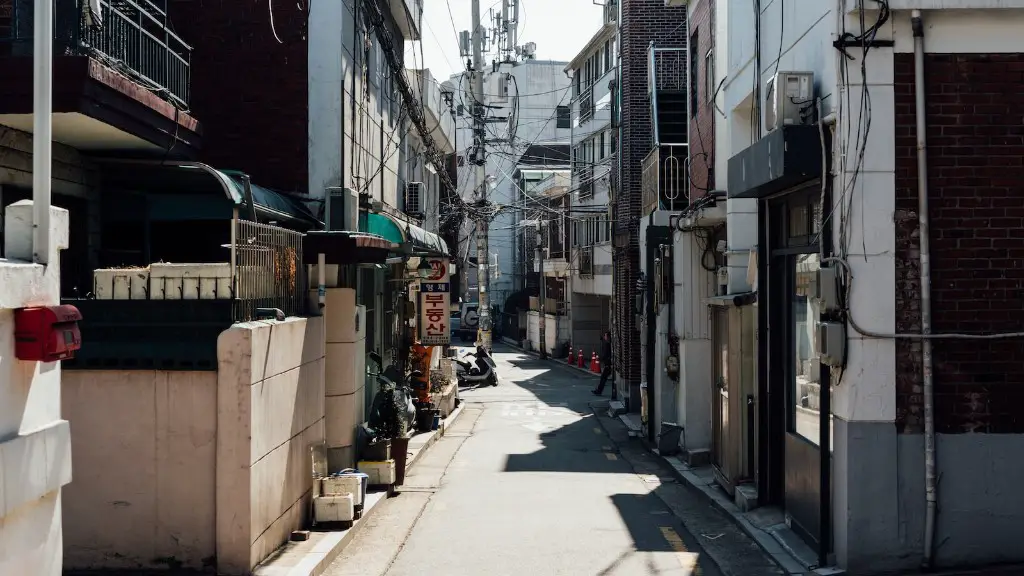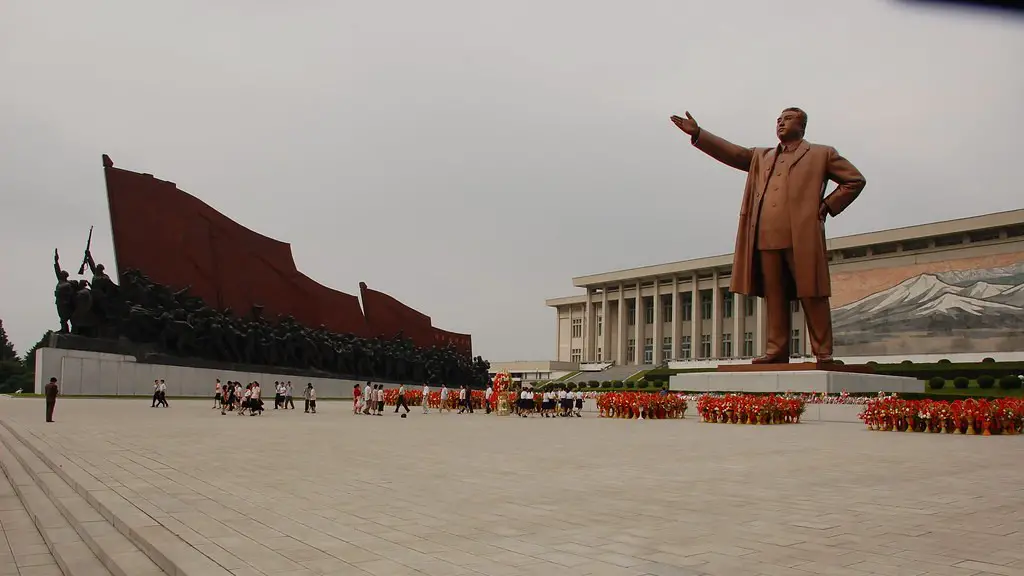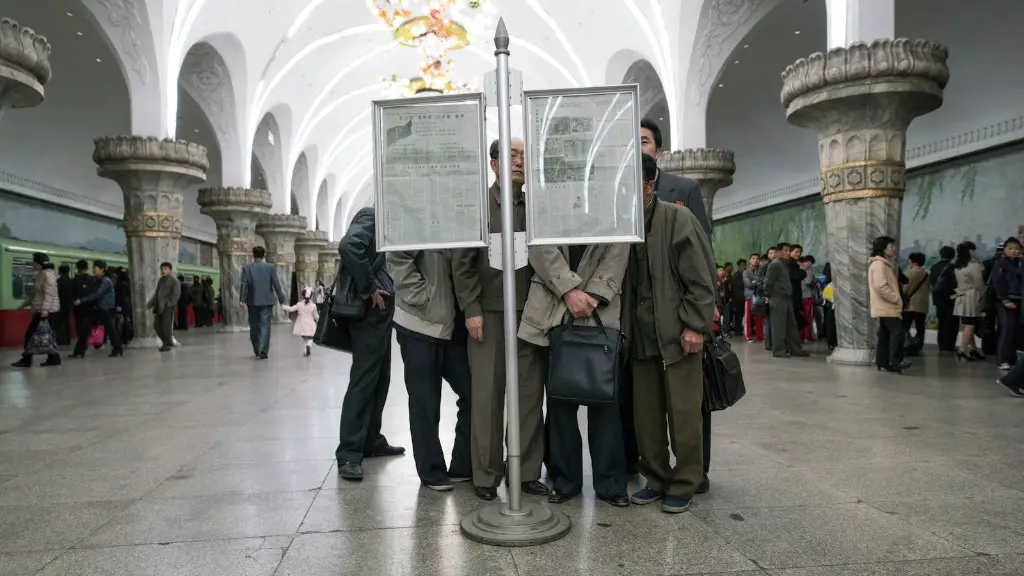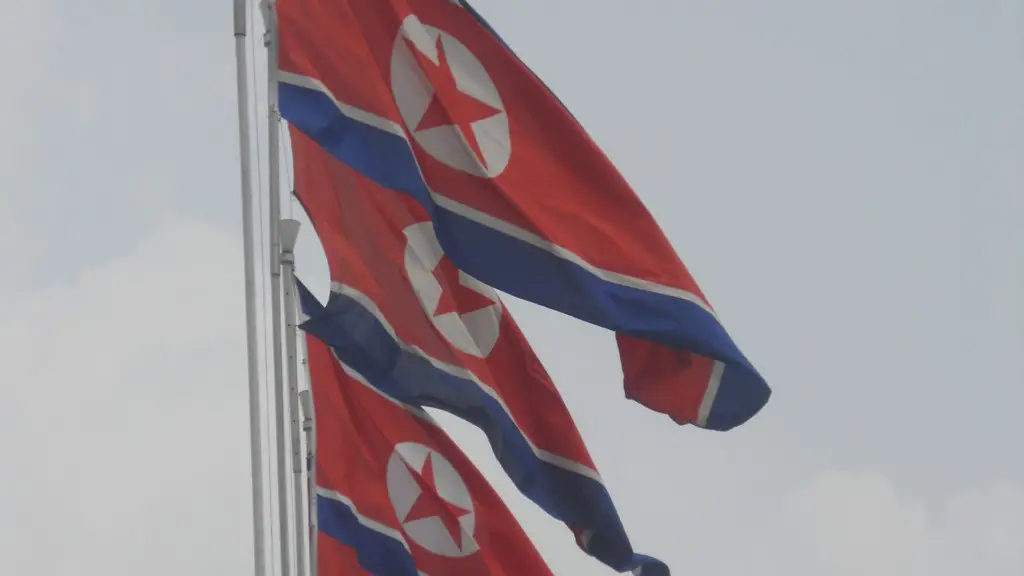Located in East Asia, the Democratic People’s Republic of Korea (North Korea) is home to over 25 million people. While its government keeps the nation mostly closed off from outside influence, there are still many resources within its borders. North Korea is known for its military and weapons capabilities, bountiful potential for electricity, and a variety of minerals for export.
North Korea’s military resources are renowned for their strength. It is estimated that the North Korean armed forces include approximately 1.2 million personnel. North Korea is believed to possess a large stockpile of chemical and biological weapons, and may have as many as 10 nuclear warheads. North Korea has plenty of military resources: jet fighters, warships, ballistic missiles, and a large arsenal of conventional weapons.
The Democratic People’s Republic of Korea is estimated to have an ample amount of electric potential. According to the International Atomic Energy Agency, North Korea possesses the capacity to generate between 20 to 25 gigawatts of electricity. While the actual electricity output is subject to the availability of fuel and the condition of the electrical power grid, the Democratic People’s Republic of Korea still can be produce a great deal of electricity.
Additionally, North Korea is known as a rich source of minerals. There are numerous mineral deposits located in the Democratic People’s Republic of Korea, including “iron ore, coal, magnesite, gold ore, zinc ore, copper ore, limestone, molybdenum, and graphite”. For many years, North Korea has sold mined minerals to China and Asian countries, earning valuable currency for the nation.
While North Korea may not be as well known for its resources as other nations, it is clear that the Democratic People’s Republic of Korea does have a variety of resources. From military might to vast sources of minerals, North Korea has potential to be a great resource for East Asia.
Economy
The economy of North Korea is largely based on the military and its own people. It is estimated that nearly 70% of the population work in state owned enterprises and are employed by the military. As a result, the North Korean economy is largely controlled by the government. The nation’s industries are focused on developing resources of a military or strategic nature such as aircraft, tanks, military equipment, and energy production.
Additionally, North Korea’s economic production is mostly dependent on its natural resources. Raw materials such as iron ore, coal, magnesite, and zinc are found in the North Korea, making it an important player in the Asian resource industry. Its mineral exports to China and other nations bring in a considerable amount of income.
North Korea also has a very small and underdeveloped capitalist private economy, often referred to as “jangmadang”. This part of the economy consists of marketplaces where small-scale private farmers, merchants, and traders buy and sell goods and services. Jangmadang is largely responsible for the basic needs of the North Korean population and is rapidly expanding.
However, despite its resources and small capitalist economy, North Korea’s economic state continues to be precarious. It has been heavily sanctioned by the international community due to its nuclear weapons program and the resulting impact on the nation’s economy has been considerable.
Food Supply
Due to its limited resources, North Korea faces a food shortage. Nearly 40% of North Koreans are food insecure due to limited agricultural production and inadequate access to food. North Korea’s food insecurity is further worsened by its limited health system, resulting in a lack of proper nutrition.
While North Korea produces some of its own food, it is unable to fulfill its own needs and a large portion of its people suffer from malnourishment. Because of this, the government heavily relies on food aid from foreign countries and international organizations such as the United Nations World Food Program.
In addition to the food shortage, North Korea also faces a wider problem of poverty and overall economic instability. This has resulted in a large number of North Koreans attempting to flee their homeland and seek refuge in neighboring countries such as South Korea and China.
Due to its lack of resources, North Korea faces tremendous hardships, making it difficult for the population to survive. It is essential that the country has access to food aid and other forms of support in order to meet its basic needs and ensure the survival of its people.
Government and Politics
The Democratic People’s Republic of Korea has one of the most closed-off governments in Asia. It is ruled by the Korean Worker’s Party and governed by the National Defense Commission. The current leader and head of state is Kim Jong Un, who has been in power since 2011. The government of North Korea is a single-party state and is known for its oppressive rule.
North Korea’s international relations are strained due to its nuclear weapons program and its withdrawal from the Nuclear Non-Proliferation Treaty. It is heavily sanctioned by the United Nations and faces a great deal of economic difficulty as a result. In spite of this, North Korea continues to maintain relations with some countries, including China and Russia.
North Korea also faces criticism from the international community for its human rights record. Reports from the United Nations and human rights organizations claim that the North Korean government systematically violates the human rights of its citizens. The government has been accused of using violence and intimidation to suppress dissent and freedom of expression.
In spite of the international community’s concerns, North Korea continues to remain a closed off and oppressive nation without much outside influence. Its people are subject to harsh treatment by the government and its policies primarily focus on maintaining order and regime stability.
Cultural Impact
Despite its repressive government, North Korea has a vibrant and unique culture. Traditional Korean culture is still very much alive in the Democratic People’s Republic of Korea and many customs have been maintained. Traditional dances, music, art, and martial arts are still a part of everyday life.
The culture of North Korea is heavily influenced by its political ideology. The government actively promotes national pride and loyalty to the state, often through various cultural events and festivals. Additionally, the government uses propaganda as a way to control the masses, often emphasizing its ideology through popular media and literature.
In spite of its oppressive government, North Korea has still managed to maintain its cultural identity. Its citizens are proud of their culture and its ability to withstand outside influences. It is through these cultural activities that North Koreans can express their individual identity within the confines of the oppressive regime.
Religion
North Korea is a predominantly secular state and as such does not promote any particular religion. The North Korean government is officially atheist and does not allow its citizens to practice any official form of religion. While there is some tolerance for some traditional religious practices, the government actively seeks to limit religious influence.
There are a few official state-sponsored religious activities such as the ruling Workers Party hosting public memorial events to the party leaders Kim Il Sung and Kim Jong Il. However, these do not constitute true religious worship and instead act as a tool of propaganda, glorifying the ruling party and its leaders.
In spite of this, it is estimated that a small minority of North Koreans still practice traditional folk religions, Buddhism and Confucianism. However, these practices are suppressed by the government and many religious believers fear government retribution if they are caught.
North Korea’s strict stance against religion has resulted in the near complete suppression of religious influence within the nation. While some North Koreans still practice traditional religions in secret, the majority are forced to accept the state’s official atheism.





